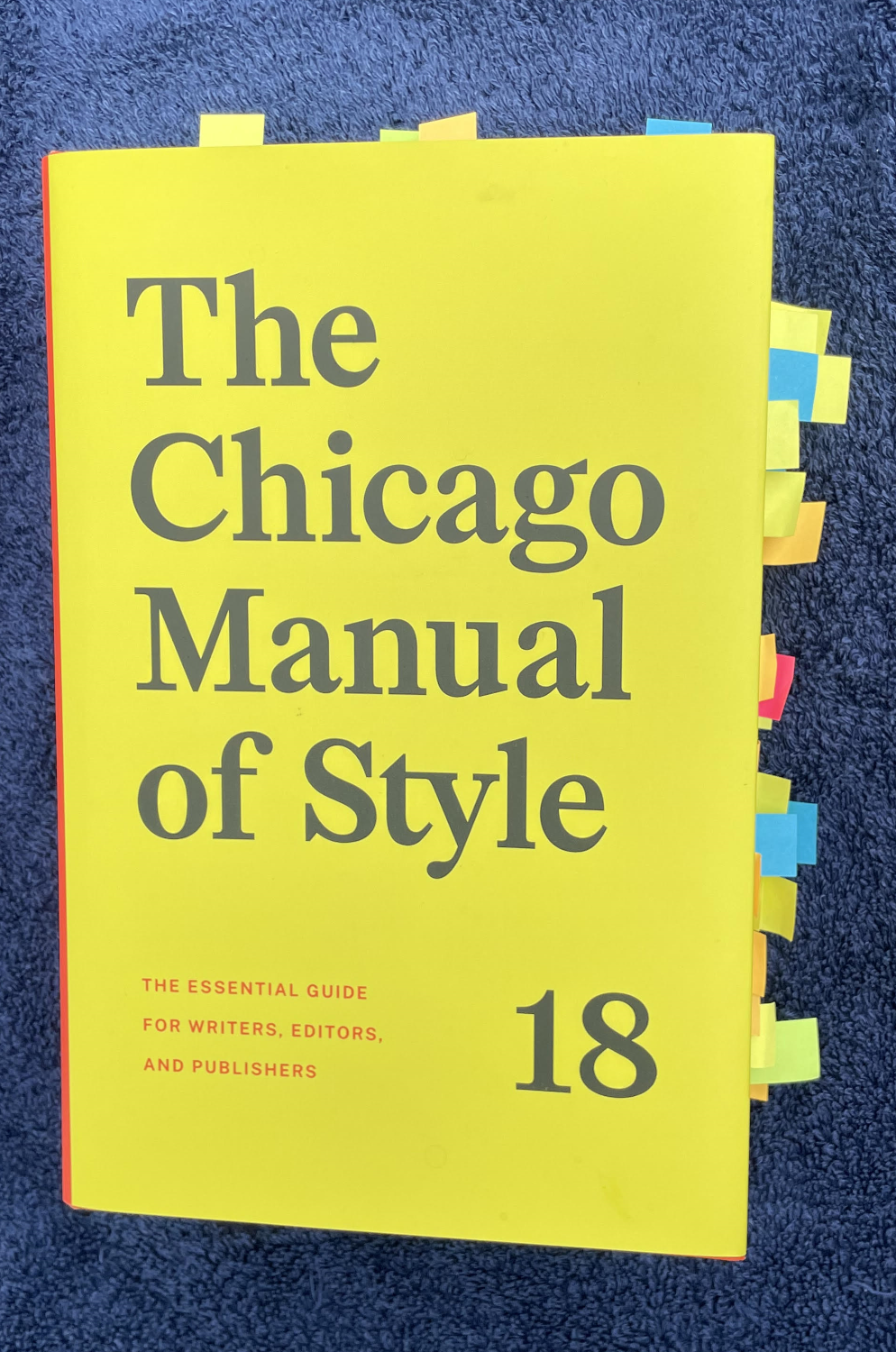Helping Clients Implement 18th Edition Chicago Style Changes
By Beth Chapple
Recently I undertook the project of updating my clients’ house style guides to the latest Chicago style. More than 330 Northwest Editors Guild members edit to this style, according to my informal search of the member directory. So you are likely aware that the print edition of the 18th edition of the Chicago Manual of Style (CMOS) was released on September 18, 2024. Many editors preordered the book or got a sneak preview of the updated CMOS Online before the official release date.
Upon asking my clients about the new edition, I found that they had no plan to implement the changes and no one with time to update house style. In the words of one senior editor, “please drag [client journal] into 2025” and “everyone is too busy to take this on.” Perhaps you find yourself in a similar situation and want to offer to help your clients update their own style guides.
On my own time I had already marked up and sticky-noted the new hardcover edition according to the list at the What's New page on the CMOS website. I am grateful to participants at an Editors Helping Editors online get-together in October for covering the information.
My color-coded sticky notes marking up the 18th edition of CMOS.
More than half my note tabs are yellow, indicating an important change requiring a rewrite and an updated paragraph number in a house style guide. Those include capitalizing prepositions of five letters or more in title case (8.160), using an initial cap after a colon for even just one full sentence (6.67), and omitting the place of publication for works published since 1900 (14.30). Orange tabs are updates that may necessitate a discussion with the house editor before making a decision. (If you use CMOS Online, you can see what’s new in the 18th edition with the search term “departure,” since the new edition repeatedly says, "in a departure from previous editions. . . .")
Here’s how I went about the project. First I informed each client (two so far) that I would be happy to revise their style sheet to reflect the important CMOS updates, tracking changes in Word so they could go through and approve or reject each point. That review step is necessary because any house style based on CMOS can have exceptions. If the style guide includes documentation examples or previously cited CMOS paragraph numbers, those warrant special attention. In one case I included a new section with changes to aspects that the guide didn’t cover before. Then I awaited approval and finalized the changes.
All has gone well so far. One editorial team even decided to modify some further house style points and generally not deviate from CMOS, for the sake of simplicity. The fact that I already knew the client's style guide intimately saved time and made me the right person for the job, something you could consider mentioning to your own clients.
Back to the sticky-note project: The blue tabs mark points I find interesting but that don’t directly concern my work. One change that relates to us in the Pacific Northwest: The rule at CMOS 8.52 states that the governmental entity is “State of Washington.” You can also use “the state of Washington” or “Washington state” in general references. But never use “Washington State” with a capital S because that’s now against the rules! Paragraph 8.51 of CMOS 17th edition stated: “Words denoting political divisions—from empire, republic, and state down to ward and precinct—are capitalized when they follow a name and are used as an accepted part of the name.” By the way, I follow this personal rule: Refer to Washington, DC, as “the other Washington.”
Which updated style choices would benefit your clients? Let us know if you’ve updated your clients’ style guides and how they responded on the member email list or on social media!

